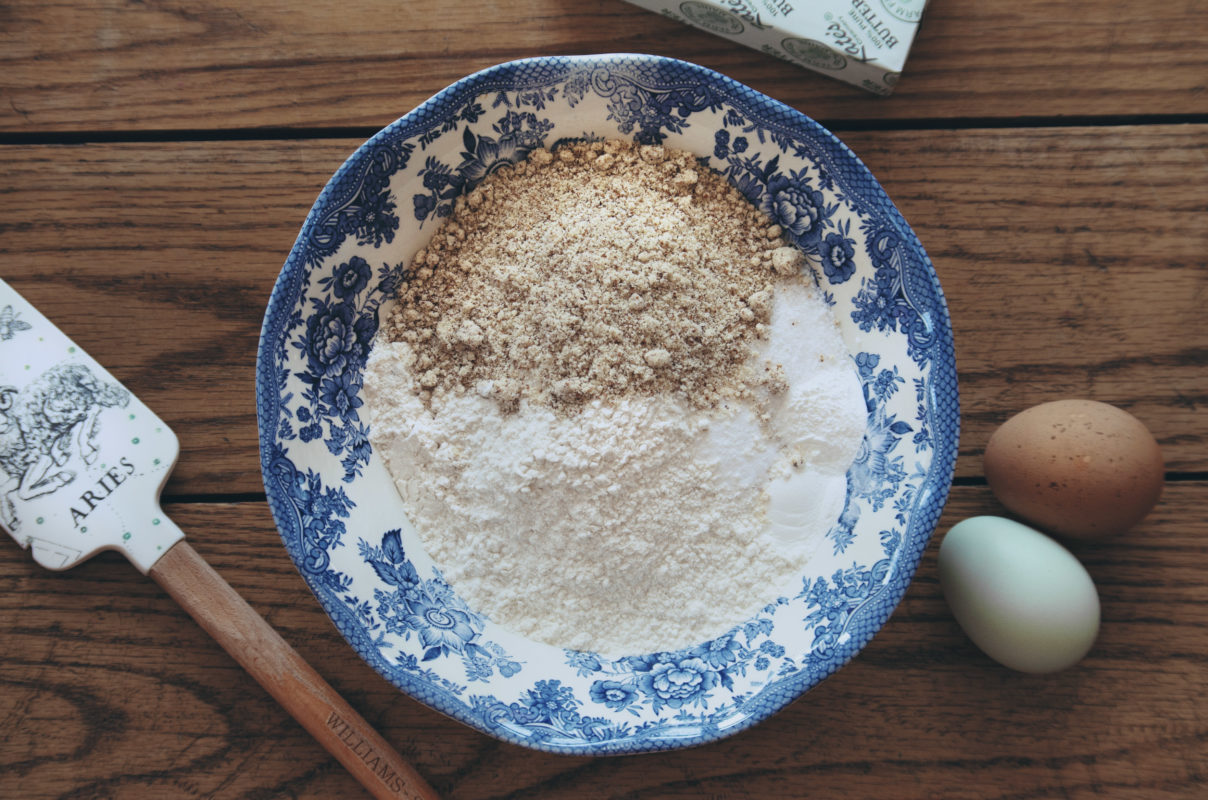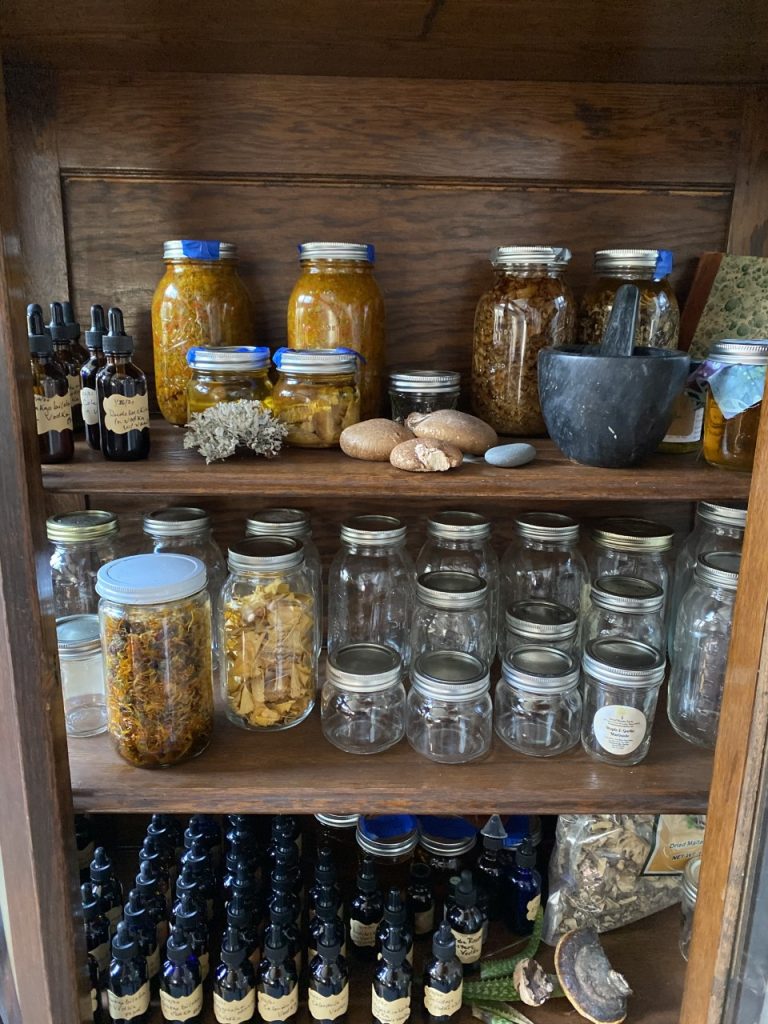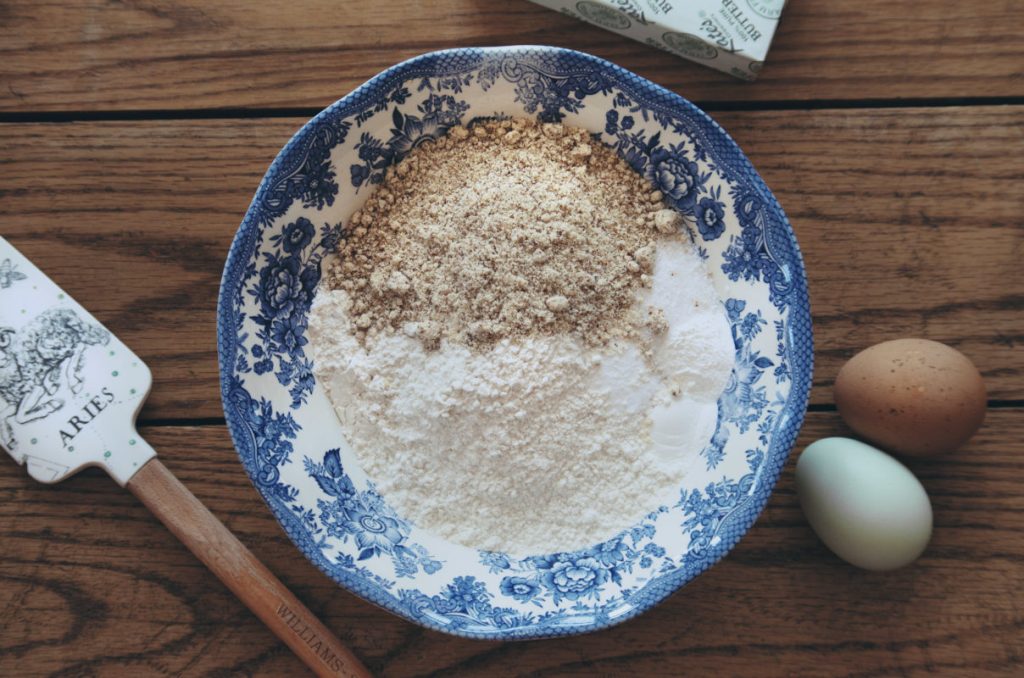We can probably all agree that 2020 has hosted its share of challenges. And while we’ve doubtless found new ways of coping with stress, anxiety, and uncertainty, sometimes there’s nothing more comforting than invoking nostalgia.
And what is it I always say? Yup! There’s an herb for that.
When I think of nostalgia, I think of winter. For me, that cold, festive, and restful time of year inevitably leaves me craving nostalgic scents like cinnamon, clove, nutmeg, or ginger. If you’ve ever wondered why the colder months are so closely associated with these fragrant and comforting herbs (spices, actually—herbs are the leaves of a plant, while spices are the roots, barks, or seeds), well, think warmth.
And despite the fact that it may be June, we could always use a little more warmth in our lives.
But let’s look at these spices a little more closely. First, as anyone who has accidentally/on-purpose encountered undiluted cinnamon or ginger on the tongue will know, they’re extremely warming. In the winter, this is exactly what our bodies, our circulation, and our metabolism need. In quantity, warming herbs bring blood to the surface of tissues, acting as a radiator of sorts.
Warming herbs also tend to soothe the stomach, aid digestion, and regulate blood sugar—all vital support during a season when a surplus of rich foods accompany any festivity (that heavily spiced pumpkin pie is making a bit more sense right now, isn’t it?).
But no matter the season, tossing a few of these spices into all the pies, breads, and cookies we seem to be baking these days helps with digestion, assimilation, and adds that vital nostalgic-y comfort.
So let’s explore a few other ways to integrate these so-called seasonal spices into a variety of foods and beverages.
Cinnamon (Cinnamomum zeylanicum):
Cinnamon is a choice herb for those (like yours truly) who complain that they are always cold, no matter the season, no matter how many layers they pull on or how many blankets they burrow beneath. Traditional Chinese medicine uses cinnamon to dry dampness in the body (you know—that cold-to-the-bone feeling) and stimulates circulation. It’s an excellent digestive tonic, an antioxidant with anti-inflammatory properties, and has been found to help reduce cholesterol.
Ginger (Zingiber officinale):
Ginger really does it all—it can spark up the immune system, fight allergies, may help lower cholesterol, relieves inflammation, stimulates digestion, fights nausea and morning/motion sickness, and warms the body. Try drinking ginger tea—hot or iced. Personally, I love crystalized ginger and chew a piece now and then as a treat.
Cardamom (Elettaria cardamomum):
Cardamom, also a member of the ginger family and high in antioxidants, has the same warming, stimulating effect. For chronic digestive upset, cardamom is one of your best allies for quick relief. As an antispasmodic, it relieves muscle tension, and as a bronchodilator, cardamom helps open the respiratory passages and clear the mucus associated with a heavy chest cold. Also? It’s pretty fabulous whipped into a cup of coffee or used in place of cinnamon in your favorite recipe. Just be warned—a little goes a long way, and too much cardamom can quickly take over all other flavors.
Nutmeg: (Myristica fragans):
Nutmeg is good for digestion, helping prevent flatulence, treating diarrhea, and (like cardamom) may ease chest congestion. Added to your evening beverage, Ayurveda-style, nutmeg is a natural sleep aid. Bonus, it boasts antibacterial properties—excellent support no matter the time of year.
Just keep in mind that nutmeg, in large doses, can be toxic. Amounts like this—anything more than 10 grams (roughly 1.5 tablespoons) ingested at one time—are rarely taken accidentally. However, the responsible herbalist in me has to issue fair warning. But in small, “normal” doses, all is well.
***
It may not be the festive season, but, during times of distress or discomfort, it makes perfect sense to turn to these warming, comforting spices. The beauty of these herbs is that we don’t really have to think about what we’re using and when, but simply follow our own cravings, our own tastes, our own intuition, and our own memories. If you’re craving a particular herb or spice, indulge yourself—no matter what the vehicle, no matter what the season, the featured herb will benefit you, mind and body.
Enjoy the spice of any (and every!) season.
~Amy Holt, Writer/Editor

